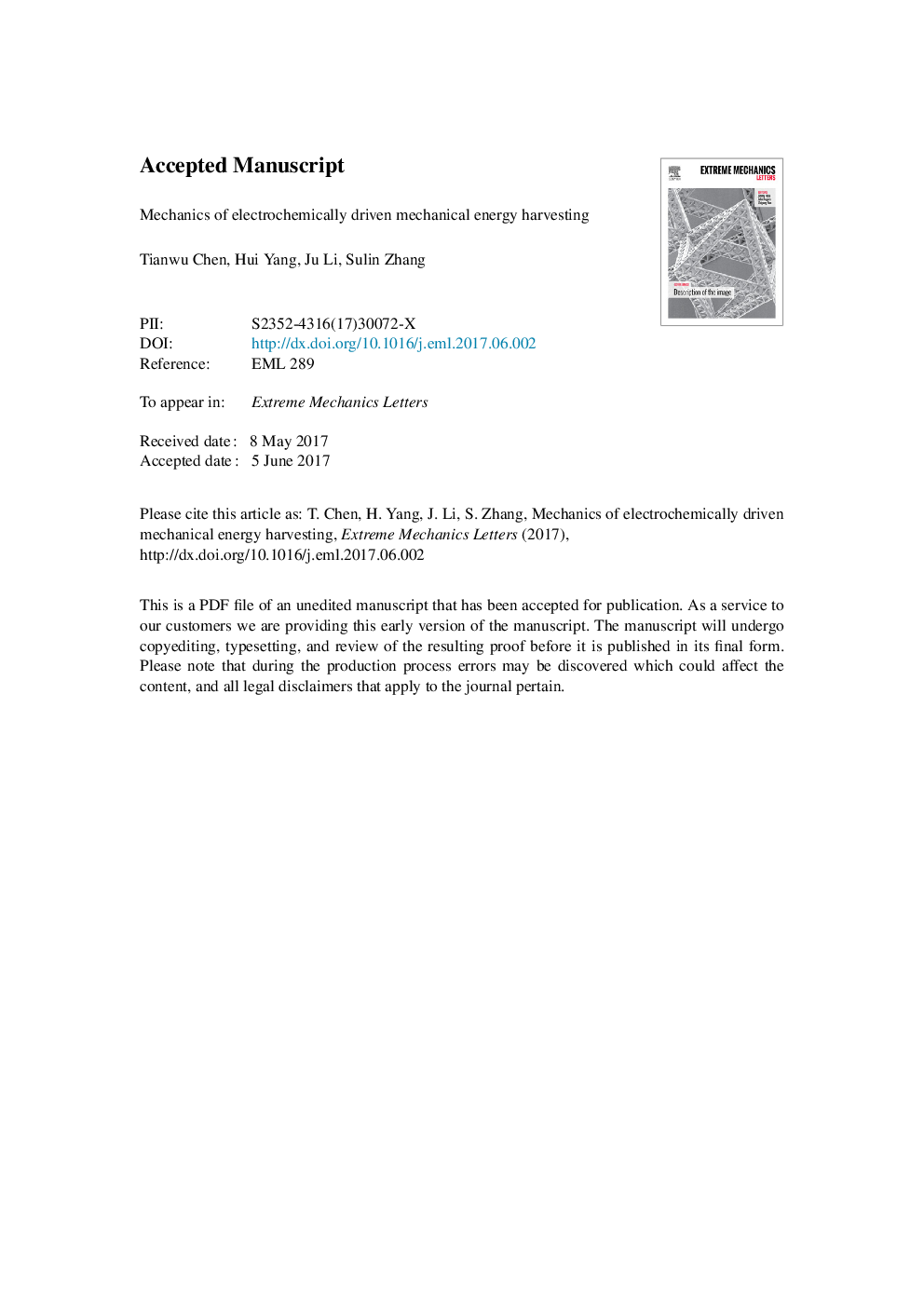| Article ID | Journal | Published Year | Pages | File Type |
|---|---|---|---|---|
| 5014480 | Extreme Mechanics Letters | 2017 | 14 Pages |
Abstract
Recent studies have demonstrated that an electrochemical cell can be mechanically activated and convert mechanical energy to chemical energy, thereby enabling a new class of electrochemically driven mechanical energy harvesters. Here we present a general mechanics framework to elucidate the stress-composition coupling and evaluate the performance of such mechanical energy harvesters. We obtained the functional dependence of the chemical potential of charge carriers on the chemical composition and mechanical deformation, which infers the capacity and open-circuit voltage. For a thin-film based electrochemical cell under bending, our analyses show that its capacity and open-circuit voltage depend on a set of design parameters, including applied curvature, initial composition, and the types of charge carriers (sodium versus lithium ions). We further developed a kinetic model with which we simulated the dynamic evolution of stress and composition in the thin-film cell. Our results provide fundamental guidance to optimize the performance of the mechanical energy harvesters.
Related Topics
Physical Sciences and Engineering
Energy
Energy Engineering and Power Technology
Authors
Tianwu Chen, Hui Yang, Ju Li, Sulin Zhang,
